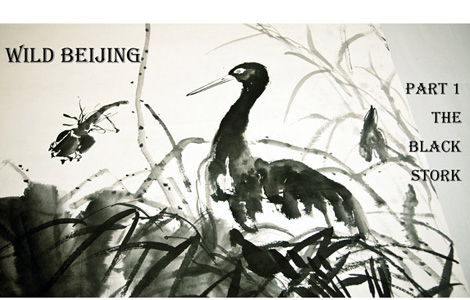Global challenges dominate summit agenda
Updated: 2013-06-28 08:16
By Chen Jia (China Daily)
|
||||||||
Participants to discuss trends affecting the world's economy and political structure
The world's economic and political development challenges and new cooperation mechanisms will be on the agenda when politicians and scholars gather at the Global Think Tank Summit in Beijing on Friday.
It will be the third time that the China Center for International Economic Exchanges, or CCIEE, a top government think tank, hosts the biennial summit, with the theme of New Patterns, New Cooperation and New Development.
Wei Jianguo, secretary-general of the CCIEE, said that "the global economic recovery remains weak, and the economic governance structure that resulted in the financial crisis has not yet been readjusted".
As the structural contradictions persist, think tanks in different countries should jointly provide ideas to solve the problems, Wei said.
During the two-day summit, participants will discuss changes and trends affecting the global economy and political structure, new engines for China's growth and the adjustment of international relations.
After the global financial tsunami, formulating economic policies that benefit one country by hurting others is not sustainable, given deepening globalization, the CCIEE secretary-general said.
"The summit is an independent and professional platform for different countries to communicate and coordinate economic and political policies," Wei said.
"As the second-largest economy in the world, China needs a think tank that has the global influence to express our own objective and rational views," he added.
The second Global Think Tank Summit focused on the common responsibility of global economic governance. The first, which was hosted in July 2009, suggested measures to cope with the financial crisis based on international cooperation.
The world's economic recovery still faces uncertainties, which adds pressure on the development of emerging markets, analysts said.
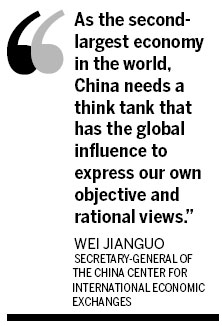
Speculation about the possible timing and pace of the United States Federal Reserve's exit strategy from its quantitative easing program has taken the headlines recently, said Ricard Torne, a senior economist with FocusEconomics, a provider of economic consensus forecasts for more than 70 countries.
According to Federal Reserve Chairman Ben Bernanke, the Fed may start tapering the QE program later this year, as "the downside risks to the outlook for the economy and the labor market have diminished since the fall", Torne said.
A market view from the Intelligence Unit of The Economist, a think tank, said that capital has been flowing out of emerging markets since several months ago, as investors speculated the Fed will decrease bond purchases.
"The global capital market may see more sharp fluctuations, and emerging markets will sharply increase their financing demand under the pressure of capital outflows," said Liu Qian, deputy director of the China forecasting service at the think tank.
Meanwhile, the eurozone remains mired in the longest recession in its history, which prompted the European Central Bank to trim its growth projections for 2013 and 2014.
FocusEconomics downgraded its GDP forecast for the eurozone from a contraction of 0.7 percent to one of 0.8 percent, as tight fiscal policies will continue to restrain growth and measures to stimulate employment may not be effective soon.
The company forecast that China will continue to lead the world's growth for several years.
In Asia, except Japan, GDP growth may be slightly lower at 6.4 percent this year, compared with 6.6 percent in 2012, it said.
Economic growth in China is expected to slow this year to about 7.5 percent, the government's target, from last year's 7.7 percent, amid sluggish domestic and foreign demand.
In May, industrial output moderated and investment hit a nine-month low. Moreover, exports slowed to their lowest level in almost one year, after the crackdown on inflated trade invoices.
The central bank's determination to retain a prudent stance in its monetary policy also raised concerns about a potential debt crisis in the banking system.
Zhang Zhiwei, chief economist in China with Nomura Securities Co Ltd, said: "The liquidity squeeze is the first real economic test for China's new leaders, to prove their willingness to overcome tough economic issues not with words, but by their actions."
He said the government will undertake structural reforms to sustain more balanced growth, and he added that a hard landing can be avoided.
China is playing a more important role in the world's economic recovery, while at the same time economic connections among countries are getting closer, said Zhang Liqun, an analyst from the Development Research Center of the State Council.
As a result, foreign countries are paying closer attention to Chinese growth, and think tanks should take the responsibility of giving a comprehensive and accurate development picture for foreign policymakers and investors, according to Zhang.
Pascal Lamy, director-general of the World Trade Organization, said: "In the new world, China has an important role to play and I hope more communication will be set up to understand what China's role is in building up this necessary global economic governance.
"The world is changing fast and China itself faces new challenges that will appear with economic and social development, and that is calling for new policy responses," Lamy said.
chenjia1@chinadaily.com.cn
(China Daily USA 06/28/2013 page18)
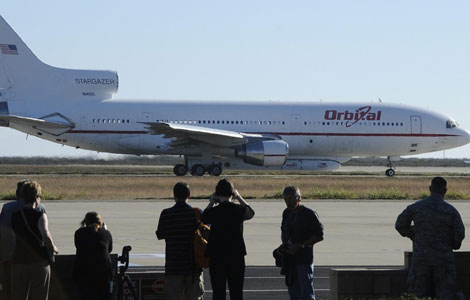
 NASA telescope to probe solar mystery
NASA telescope to probe solar mystery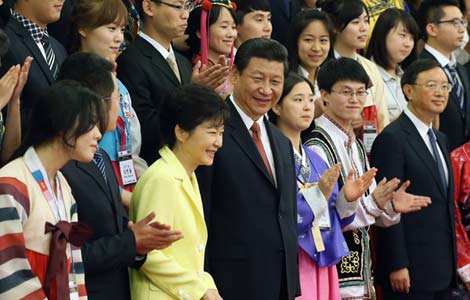
 Visit aids 'trust-building process'
Visit aids 'trust-building process'
 King of Pop returns
King of Pop returns
 Crowds cheer Court decision on gay marriage
Crowds cheer Court decision on gay marriage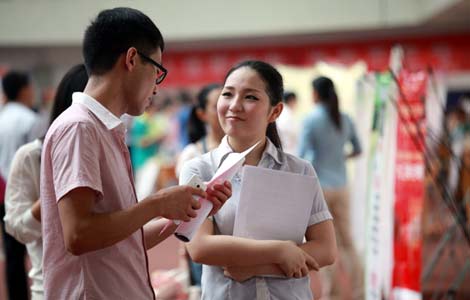
 Hiring index signals further job weakness
Hiring index signals further job weakness
 Dance becomes popular stress relief
Dance becomes popular stress relief
 Philippine, US start Naval exercise in S China Sea
Philippine, US start Naval exercise in S China Sea
 Supreme Court gay rights ruling celebrated across US
Supreme Court gay rights ruling celebrated across US
Most Viewed
Editor's Picks

|

|

|

|

|

|
Today's Top News
Senate OKs immigration reform; hurdles remain
Snowden could request asylum in Russia: official
US collects Internet data on citizens
Boston bombing suspect accused in 4 deaths
816 elected in provincial leadership reshuffle
US adds to DPRK sanctions list
Chinese pros put trust in blogs
More Americans see Snowden as patriot: Poll
US Weekly

|

|
